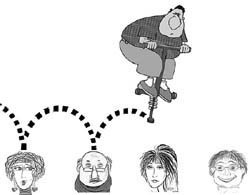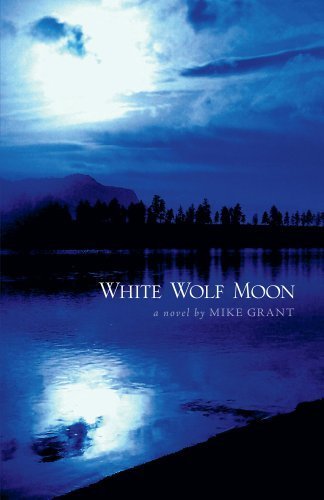S.K. Nicholls's Blog, page 33
October 20, 2014
Reedy Creek: The Launching Point of Book Two
My next book focuses on a crime that occurs south of the Reedy Creek Improvement District (RCID). This is an area of old world Florida that was raped to create Disney World. I say raped, although Disney’s RCID works hard to maintain the district now, because it has seen some dramatic changes over the past forty years that have totally disrupted the natural ecosystem.
Disney called on his friends to lead the way in turning the marshes, swamps and wetlands of Central Florida into what would become the Walt Disney World Resort.
The headwaters of Reedy Creek are not natural. An effort to demolish a stand of low rent housing unearthed the waters. The low-lying swamps were essentially drained into what became Reedy Creek. It is now in what is one of the busiest parts of the world. But there is some effort to maintain the beauty and cleanliness of it.
Walt Disney World sits on of 25,000 acres in Central Florida governed and managed by an essentially “private” government—the Reedy Creek Improvement District (RCID). RCID levies taxes on its residents, devises and enforces building codes, handles waste management and fire protection, issues bonds to finance infrastructure projects, and performs many other functions ordinarily performed by local governments.
With its headwaters in what is now Walt Disney World, Reedy Creek flows sluggishly southward through cypress swamps into pristine Lake Russell, and is one of the northernmost sources of water for the Everglades.
The Osceola County Schools Environmental Study Center has a nineteen acre area of Reedy Creek where you can walk out through the swamp.
The cypress with its air-pine bromeliads growing on the trunks and the water fowl are powerfully breathtaking. I always think of the Indians who made this their homeland long before we came along. What we see as inhospitable, they made their homes and learned to work within the environment to survive.
This nineteen-acre segment of the Reedy Creek Swamp offers elevated observation boardwalks, three hiking trails and indoor educational displays. You can see alligators sunning on turtles and turtles sunning on alligators.


The Reedy Creek Elementary school is an earth-bermed structure designed to be obscure in the natural habitat. Many Indian artifacts were unearthed when the school was built, including full-sized dugout canoes, which are on display inside the school.



Book Two of the Naked Eye Series begins as one of the private investigator’s former investment partners plans to work with the Seminole Indians to build a casino near the RCID and another one plans to build condos. One former partner ends up dead.
Filed under: Fascinating Florida, Settings and Feature Articles on Naked Malice, Writing Process/WIPs Tagged: Book Two, conservation, murder, Naked Eye Series, Reedy Creek, swamp, wetlands








October 19, 2014
Read Tuesday: Now Accepting Books for 2014
Call for submissions. Authors sign your books up and get the promo going!
 Originally posted on ReadTuesday:
Originally posted on ReadTuesday:
READ TUESDAY
The time has come,
A wonderful day,
For those who love books,
called Read Tuesday.
♦
Like Black Friday,
But not for television;
Give the gift of reading
This holiday season.
ACCEPTING SUBMISSIONS
Read Tuesday is now accepting submissions for:
Kindle Countdown Deals that include Tuesday, December 9, 2014. (Please try it out and verify that dates are possible before you sign up.)
Temporary Kindle price reductions that include Tuesday, December 9, 2014. (Please try it out and verify that the lower price is possible before you sign up.)
It’s okay to start early and end late. This might be to your advantage.
Listing on Read Tuesday is FREE.
Sign up by clicking here. This will take you to a one-page Google Docs form to complete. If you have any trouble with the form, please use the Contact Us button on the Read Tuesday website.
More opportunities…
View original 323 more words
Filed under: Uncategorized








October 18, 2014
Person, POV and Head-Hopping
 First, let me say that you should write your story any way that you want to. That being said, these are guidelines, not rules carved in stone. Many great authors deviate from these guidelines and create wonderful works. Some readers are okay with head-hopping and some readers detest it. I’m sort of in the middle, but the more I learn about it, the more I lean toward NOT head-hopping in most fiction.
First, let me say that you should write your story any way that you want to. That being said, these are guidelines, not rules carved in stone. Many great authors deviate from these guidelines and create wonderful works. Some readers are okay with head-hopping and some readers detest it. I’m sort of in the middle, but the more I learn about it, the more I lean toward NOT head-hopping in most fiction.
To understand head-hopping, you have to grasp point of view and person.
Most creative fiction is written in first person (I, me, mine, myself, us, our, we) or third person (Proper nouns, like names, and they, he, she) point of view.
With first person, the narrator is often the main character. (But not always, I read a book recently where a doctor was the narrator in first person telling someone else’s story.) This voice allows the reader to identify with the main character very closely. The reader can get inside the head of this person, know what she/he is thinking, and know everything the writer has let the character know. It is limited in that the reader only gets to know his/her feelings and thoughts, not those of the other characters. The writer can describe all of the ways his first person’s character’s five senses are affected, sights, sounds, smells, feelings, tastes, but cannot let you in on what others perceive except second-hand through the first person character.
Joey followed me into the bar. He must not have seen Janet sitting in the booth beside the door. He walked past the booth and ordered a whiskey. Janet blushed at the sight of him so soon after the incident.
In the first paragraph me, the main character, assumes (thinks) that Joey doesn’t see Janet. You are still in the main first person character’s head. The main character, me, sees Janet blush.
Joey followed me into the bar. He didn’t see Janet sitting in the booth by the door. He walked past the booth and ordered a whiskey. Janet felt embarrassed at the sight of him so soon after the incident.
In the second paragraph, there is head-hopping. How does me know Joey didn’t see Janet? He can’t know what Joey thinks. The writer has jumped out of me’s head and into Joey’s head. How does me know what Janet is feeling? The writer has jumped out of me’s head and into Janet’s.
A greater head-hopping problem is when there is head-hopping in the same sentence:
We went into the bar, saw Jane at a booth and she felt embarrassed to see Joey so soon after the incident.
That’s seriously problematic for a reader. The writer is inside three different heads in one sentence.
You can also have multiple POV in first person, usually separated by chapters for ease of reading. It has the effect of slowing the story down to examine each character’s perspective before moving forward, giving the writer’s story an ebb and flow.
With third person, you can have a limited POV (closed omniscient), or unlimited (omniscient).
Third person limited omniscient still restricts feeling and thinking to one central character in a scene. If this was third person omniscient limited (closed to Sam’s POV only) you could write:
Joey followed Sam into the bar. Joey must not have seen Janet sitting at the booth by the door. He walked past the booth and ordered a whiskey. Janet blushed at the sight of him so soon after the incident.
Third person omniscient doesn’t impose those restrictions on the scene. The narrator can show whatever any or all the characters know and feel. If this was third person omniscient you could write:
Joey followed Sam into the bar. Joey did not see Janet sitting at the booth by the door. He walked past the booth and ordered a whiskey. Janet blushed with embarrassment at the sight of him so soon after the incident. She grabbed her purse, arose, and headed for the door.
To totally avoid head-hopping, it is really best, even in third person omniscient POV, to have the thoughts and feelings of different characters separated at least by paragraphs, if not by scenes:
Joey followed Sam into the bar. Joey did not see Janet sitting at the booth by the door. He walked past the booth and ordered a whiskey.
Janet blushed with embarrassment at the sight of him so soon after the incident. She grabbed her purse, arose, and headed for the door.
Many new writers prefer third person omniscient because of the freedom to tell what any character is thinking or feeling, to be able to enter the minds of more than one character. It still has to be done with care, or it comes off terribly confusing.
Separating paragraphs or scenes by POV eases the transition from one head to another.
I want to emphasize that head-hopping is NOT a cardinal sin. There are many experienced writers that use head-hopping very well. Stephen King is one who comes to mind. It has more to do with reader preference and technique. It can be done well, or make a read impossible.
Here’s a chart I ran across that breaks POV down for people who follow a visual best:
Filed under: Writing Process/WIPs Tagged: first person, headhopping, limited omniscient, omniscient, person, POV, third person








October 17, 2014
Tense Issues
I try not to bitch too much on here. I would rather keep things positive, but I do want this blog to be helpful. I don’t write a lot about politics, religion or deeply controversial issues, because I don’t really care to argue with walls. I read a great deal of indie work. I only put books on my blog that I feel I can recommend. I’m fairly liberal about what I enjoy. There have been many books in this past year of having been introduced to indie writers that have impressed me greatly.
Sometimes I have been impressed with the stories, but technicalities have resulted in me feeling that I could not recommend the books to others. I can’t say that I didn’t enjoy them, but the errors were so severe that I did not feel comfortable passing it along to you as example of something that I would encourage you to read. There are issues, usually with the writing, that have caused me to hesitate or put them aside without recommendation. Remember, word-of-mouth is your greatest marketing tool.
Excessive typos, misspellings, and the obvious misuse of words; like they’re, their, and there, and your and you’re, could of, and would of drive me nuts, but I can tolerate some of that. There are other things that are more subtle, yet most annoying.
Tense issues: These seem to be the most difficult for writers to wrap their heads around. Primarily, books are written in past or present tense. If you start in past, you should stay in past. If you start in present, you should stay in present. It spins my mind around to keep switching between the two.
Examples:
A)
Dusk on the bay is a most beautiful time. Boats are bringing in the catch of a long day at sea. The village lights come on one by one. There is movement in the water, but the air is still. The soft murmur of marine motors and the call of the gulls waiting for fish scraps are the only sounds. Our sleepy little fishing village has roughly three dozen homes and one store. There is a diner and bar at one end and a church at the other.
Captain John’s dog, Frisk, leapt from the boat as the captain idled to the dock. Frisk ran up the pier to greet me. He knew I would be waiting with a bowl of fresh water and a dog treat. I waited for him every evening. The captain was getting old and his wife had died five years earlier. He walked like he was dragging the weight of the world behind him. When the captain was finished with his chores he always met me in the diner for dinner. We shared a meal and a few stories and then he walked me home.
~~~~~~~~~~~~~~~~~~~~~~~~~~~~~~~~~~~~~~~~~~~~~~~~~~~~~~~~~~~~~~~~~~~~~~~~~~~~~~~~~~~~~
B)
Dusk on the bay was a most beautiful time. Boats brought in the catch of a long day at sea. The village lights came on one by one. There was movement in the water, but the air was still. The soft murmur of marine motors and the call of the gulls waiting for fish scraps were the only sounds. Our sleepy little fishing village had roughly three dozen homes and one store. There was a diner and bar at one end and a church at the other.
Captain John’s dog, Frisk, leaps from the boat as the captain idles to the dock. Frisk runs up the pier to greet me. He knows I will be waiting with a bowl of fresh water and a dog treat. I wait for him every evening. The captain is getting old and his wife died five years ago. He walks like he’s dragging the weight of the world behind him. When the captain finishes with his chores he always meets me in the diner for dinner. We share a meal and a few stories and then he walks me home.
~~~~~~~~~~~~~~~~~~~~~~~~~~~~~~~~~~~~~~~~~~~~~~~~~~~~~~~~~~~~~~~~~~~~~~~~~~~~~~~~~~~~~
C)
Dusk on the bay is a most beautiful time. Boats are bringing in the catch of a long day at sea. The village lights come on one by one. There is movement in the water, but the air is still. The soft murmur of marine motors and the call of the gulls waiting for fish scraps are the only sounds. Our sleepy little fishing village has roughly three dozen homes and one store. There is a diner and bar at one end and a church at the other.
Captain John’s dog, Frisk, leaps from the boat as the captain idles to the dock. Frisk runs up the pier to greet me. He knows I will be waiting with a bowl of fresh water and a dog treat. I wait for him every evening. The captain is getting old and his wife died five years ago. He walks like he’s dragging the weight of the world behind him. When the captain finishes with his chores he always meets me in the diner for dinner. We share a meal and a few stories and then he walks me home.
~~~~~~~~~~~~~~~~~~~~~~~~~~~~~~~~~~~~~~~~~~~~~~~~~~~~~~~~~~~~~~~~~~~~~~~~~~~~~~~~~~~~~
D)
Dusk on the bay was a most beautiful time. Boats brought in the catch of a long day at sea. The village lights came on one by one. There was movement in the water, but the air was still. The soft murmur of marine motors and the call of the gulls waiting for fish scraps were the only sounds. Our sleepy little fishing village had roughly three dozen homes and one store. There was a diner and bar at one end and a church at the other.
Captain John’s dog, Frisk, leapt from the boat as the captain idled to the dock. Frisk ran up the pier to greet me. He knew I would be waiting with a bowl of fresh water and a dog treat. I waited for him every evening. The captain was getting old and his wife had died five years earlier. He walked like he was dragging the weight of the world behind him. When the captain was finished with his chores he always met me in the diner for dinner. We shared a meal and a few stories and then he walked me home.
~~~~~~~~~~~~~~~~~~~~~~~~~~~~~~~~~~~~~~~~~~~~~~~~~~~~~~~~~~~~~~~~~~~~~~~~~~~~~~~~~~~~~
Past is fine. Present is fine. Mixing the two is not fine. This is why we have beta readers and editors.
This is NOT a style thing people, it is a grammar thing.
These examples are of different paragraphs, but I have seen writers mix the two tenses in the same paragraph or even the same sentence. You can be in present tense and have something happen in the past that the narrator tells about, but as a general writing rule, be careful with that. Yanking me around from past to present without a story about time travel is a sure fire way for me to put your book aside.
Most indie reads are wonderful, fresh, creative stories. But writing does have some basic rules.
Another issue I have is head-hopping from person to person, but that’s a subject for another day.
Do you understand tense differences?
Which reads more smoothly to you? A) and B), or C) and D)?
Does changing tense bother you when you read?
Filed under: Uncategorized, Writing Process/WIPs Tagged: beta readers, Books I cannot recommend, editors, grammar, past, present, style, tense








October 16, 2014
Krazy Couponing and Troopons
My daughter has 2.5 kids and stays home to be with the kids while her husband works a couple of jobs. It is a crazy world for young families trying to make ends meet. To help out, she has become one of those crazy couponers. Yes, those people that takes 30 minutes in the check-out line to go through their coupons. But she tries to stay organized so it is a relatively quick process.
She has neat little photo albums she sorts her food and non-food item coupons in and has them organized by dates as well, so she knows which expire first.
Today, she came by and after spending about an hour on my computer, she had seventy-five dollars off of items she usually shops for and twenty-five off on items I use. Giving up the printer ink is not such a bad deal as she prints in black and white. Some, she scans the QR code with her phone.
A hundred dollars an hour is a pretty smart wage, even if it’s just once a week.
Then she checked the buy-one-get-one items at her favorite grocery store and that was another thirty dollars saved. A hundred and five dollars saved on her bill. That’s awesome.
While she was on her computer, the grandson dumped a stack of expired coupons in the garbage and she freaked out. I wondered why she got so terribly upset as I watched her pulling them back out of the top of the trash.
Here’s the deal. If they are not more than thirty days expired, you can send them to military families to use at the PX…so even if she doesn’t chance to use the coupons before they expire they are not gone to waste. Every month, she takes her expired coupons and sends them off. They call them Troopons.
Churches and other organizations can make a project of this, as well.
Here’s a web article that will tell you how:
http://www.supportourtroops.org/index.php?option=com_content&view=article&id=1615/
Not so crazy after all!
Do you coupon?
What do you do with the ones you don’t use?
Filed under: Articles Tagged: couponing, coupons for troops, expired coupons, help our troops, saving money








Help Launch Read Tuesday with THUNDER
Help promote this book buying and readers event!
 Originally posted on ReadTuesday:
Originally posted on ReadTuesday:

Image from NASA
THUNDERCLAP
Read Tuesday—a Black Friday type of event just for book lovers—now has a Thunderclap promotion underway.
The idea behind the Thunderclap is create hundreds of simultaneous posts on the morning of Read Tuesday (December 9, 2014) to help spread awareness on the morning of the event.
You can help announce Read Tuesday with thunder. It’s easy:
Visit http://thndr.it/1CkO2Bg.
Click Facebook, Twitter, or Tumblr and sign in.
Customize the message. (Optional.)
Agree to the terms. All that will happen is that the Thunderclap post about Read Tuesday will go out the morning of December 9.
When I first supported a Thunderclap for an author, I had been a little nervous when it asked me to confirm. It turns out I had worried over nothing. The only thing you’re agreeing to do is to have a single message go out on your Facebook, Twitter, or Tumblr on…
View original 218 more words
Filed under: Uncategorized








October 14, 2014
Book Review: White Wolf Moon by Mike Grant
October 13, 2014
That Was Then, This Is Now, And Then There’s Tomorrow
I have been reading a lot of commercial genre fiction lately. I’m not knocking it. It serves a purpose, to entertain, but sometimes you just need something deeper. A more cerebral read, not heavy, but profound.
It is a challenge to find a book like that. Contemporary fiction often does not appeal to me…it’s too much of real life problems and miseries of everyday living. The classics are always good, but when you have read so many of them, you need something fresh. Contemporary literary fiction with excellent prose is hard to find these days.
I’ve mentioned before on this blog that I spent some time in my youth on a pot farm in the middle of the North Georgia Mountains. Those were my hippie days. Being emancipated at the age of fifteen after living in foster care and an orphanage for most of my childhood the communal lifestyle was appealing to me. I hung out with a little older crowd.
I had friends I’ll probably never see again, except maybe on Facebook: Jimmy and Mike Bullington, David Hanson, Leigh Ann Jennings, Anne and Stephen Liner, Chris Mobbs, Sheila Reddin (the Sherriff’s daughter) Kevin (deceased), Bryan, and David Hutto. (Was briefly married to one of those.) The names are not so important, but our lives were enmeshed during a most enlightening era.
You seriously have to lose the notion of sex, drugs, and rock and roll being the dominating factors if you want to truly understand that time period and how it influenced so much of what this generation was…, no, is. Not that those elements were not, at least loosely, associated with that experience of coming of age, but they weren’t the be-all, end-all of it. Most of us lived on the fringes. It was a magical time in more ways than one.
What was most significant was the coming of age in a time period that allowed all of us the freedom to develop relationships and make mistakes that promoted a growth of ideals without having to be directly taught what those ideals should or should not be. It was a wild time, yet a humanity managed to emerge that ushered in a gentler devotion to nature, peace, love and accepting the differences that exist in all of us, that make us wonderfully unique, and yet one.
There is a blogger who published a book a couple of years ago. His name is Mike Grant. He’s a quiet, laid back, older fellow who posts on occasion, but not often. When he has something to say, it is usually quite insightful, so I ventured to read his book. I was a little wary when I read the book description, (which I now feel does not do the book justice, I’ll say), and saw no reviews on Amazon and only a couple on Goodreads. I found a couple online and they were all positive. Then I read the Look Inside. I was hooked on reading the introduction. This is a book everyone from age 20 to 80 should read.
Tomorrow I will post my review of his exceptionally well-written book, “White Wolf Moon”.


Mike’s an old hippie, like me, and he told my story in 2012, before we ever had chance to meet online. I won’t tell you which character I was, but it’s all there. I went on to become a yuppie, and eventually evolved into a city dweller, but some things you just never forget. More than my story, in his wisdom, he tells the story of generations yet to come.
Have you ever found a book you could relate to so well you could swear someone spied on you?
Maybe they reached inside and tapped your soul?
Filed under: Book Reviews and Books Tagged: cerebral read, coming of age, contemporary fiction, future, genre fiction, hippies, literary fiction, Mike Grant, old age, past, present, White Wolf Moon








October 12, 2014
Goodreads Giveaway – another 5 copies of “Island in the Clouds”!!
Here is a book offer mystery readers might like to take a look at. Follow Susan Toy to beautiful Caribbean Bequai!
 Originally posted on Books: Publishing, Reading, Writing:
Originally posted on Books: Publishing, Reading, Writing:
Beginning on Monday, October 13th, and running until November 1st, Goodreads members will be able to enter another Giveaway I’m offering on the site to win one of 5 print copies of my novel, Island in the Clouds!
If you live in Canada, the United States, Great Britain, Australia, New Zealand, Ireland or South Africa, and have not already read my novel, you’re encouraged to enter this contest. Previously in three other contests, readers from Canada, the US, Great Britain, Portugal, Netherlands, New Zealand and Germany have won copies and I’ve received a few glowing reviews of the book, as a result. For more information about the book, click on the Goodreads listing for it, or click the Island in the Cloudspage here on this blog.
Since you are required to be a Goodreads member to be able to enter, it’s simple and free to join…
View original 185 more words
Filed under: Uncategorized








October 11, 2014
Life is Scary
October is Domestic Violence Awareness month. These sort of things happen every minute of every day. Don’t turn your back on spreading the word.
 Originally posted on Year 'Round Thanksgiving Project:
Originally posted on Year 'Round Thanksgiving Project:
Please read and share. Reblogs are welcome to spread the word on this very important subject.
October is a scary month. There is Halloween of course. But it is also Domestic Violence Awareness Month.
Domestic violence is a frightening thing. It seems to permeate our society. We think it is only happening to other people. Other as in “poor, other races or cultures, or lower ‘class’ people. Certainly not our middle class friends or family.
WRONG!
Domestic violence does not discriminate.
I was a young bride from a well known solid middle class white church going family. Then the unthinkable happened. My husband shoved me. I hit my head and it bled as head wounds bleed. What had I done? I thought it had to have been my fault. I would be a better wife. He apologized and said he would never do that again. He told me how much…
View original 616 more words
Filed under: Uncategorized



















